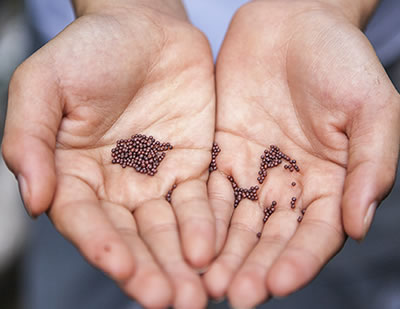
In seeking the language to talk about God and those places where God’s presence is mostly keenly felt, in other words “the kingdom of God,” Jesus relied on two sources: the ancient Hebrew Bible, the Sacred Scriptures of his people, and nature, God’s creation. As a Jew, he would have grown up learning and reciting the Scriptures, such as the text Ezekiel 17:22-24 which speaks of how God is active in our world through the miracles of nature.
Jesus also often retreated to the hills to pray. As he prayed, he no doubt contemplated the fascinating way trees and plants change and grow, hibernate and die, according to the seasons. So, when it came to explaining God’s presence and activity, the words were at hand. It is like the seed that is planted; it continually grows and becomes a plant that emerges from the soil, day and night, without ceasing, regardless of whether we are asleep or awake. God’s activity never ceases. Then, Jesus appears to put His head back and ponder the question, “To what else can we compare the kingdom of God?” It is like he is back in the forest, that place on the hillside where he spent time talking with his “Abba,” and thinking, “There is something else.” Oh yes, “the mustard seed.” The smallest of all seeds that grows to become the biggest shrub of all. Maybe this is an exaggeration. But like anyone telling a picture-story or a parable, Jesus has an author’s license. Why not? It is a great image and one that becomes imprinted on the minds of His listeners.
Now, imagine what would happen if these trees die for ever, if the green hills become colorless deserts, where would we find the language to speak of God and God’s presence in our world? Are we aware of the implications of the enormous damage we are doing to our environment? We not only kill off the plants that sustain life. We also deprive ourselves of the words that speak of the invisible mysteries of God’s loving presence in our world. Let us pray for a deeper appreciation of why we need to take greater care of our planet. Otherwise, we may be left pondering, “What happened to the mustard seed?’